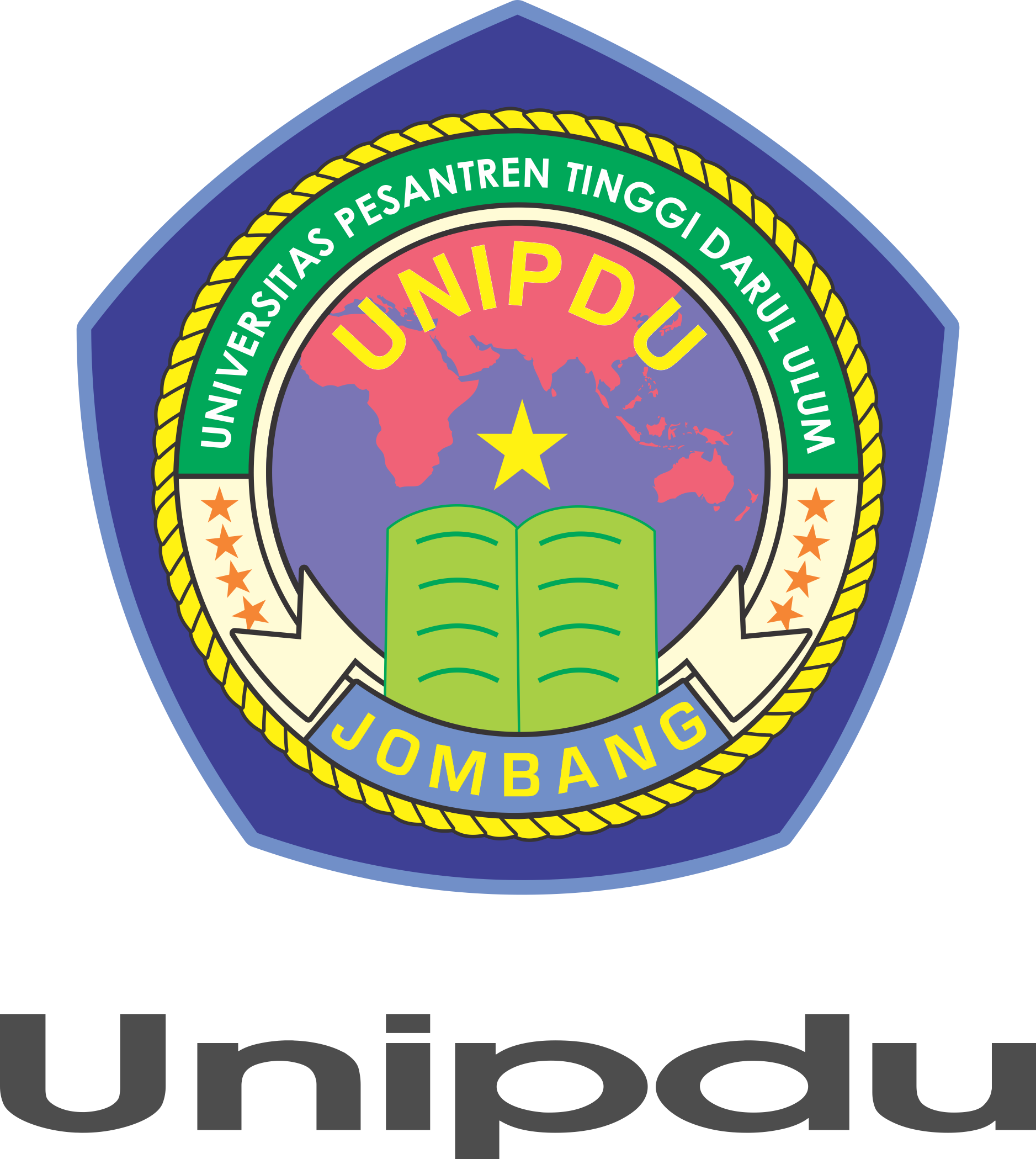Pembelajaran Berbasis Proyek pada Matakuliah PHB untuk Mendukung Kompetensi Calon Guru Matematika
DOI:
https://doi.org/10.26594/jmpm.v2i1.767Keywords:
Pembelajaran Berbasis Proyek, Penilaian Hasil Belajar (PHB), Kompetensi Calon GuruAbstract
Penelitian ini bertujuan untuk mendeskripsikan penerapan pembelajaran berbasis proyek pada mahasiswa calon guru matematika pada matakuliah Penilaian Hasil Belajar (PHB) dan respon mahasiswa terhadap pelaksanaannya. Penelitian ini merupakan penelitian deskriptif kualitatif. Subjek dalam penelitian ini adalah mahasiswa program studi pendidikan matematika FMIPA Unipdu Jombang semester gasal tahun akademik 2016/2017 yang mengambil matakuliah PHB. Hasil penelitian menunjukkan pembelajaran berbasis proyek meliputi tahapan: (1) pra proyek, yaitu: (a) penyampaian proyek dan ketentuan-ketentuannya, pembahasan teori (materi) perkuliahan, pembagian kelompok dan materi proyek; (2) pelaksanaan proyek dan evaluasi, sedangkan respon mahasiswa terhadap pelaksanaan proyek PHB yaitu mahasiswa merasa senang karena tugas-tugas pada proyek dapat memberikan banyak manfaat terutama dalam mendukung kompetensi mahasiswa sebagai calon guru matematika.References
Arikunto, S. (2012). Dasar-dasar evaluasi pendidikan (edisi kedua). Jakarta: Bumi Aksara.
Bell, A. A., Wilson, S. M., Higgins, T., & McCoach D. B. (2010). Measuring the effects of profesional development on teacher knowledge: The case of developing mathematical ideas. Journal for Research in Mathematics Education, 41(5), 479-512.
Beres, P. J. (2011). Project-based learning and its effect on motivation in the adolescent mathematics classroom. Education and Human Development Master's Theses. State University of New York. Diakses 10 Januari 2017 dari http://digitalcommons.brockport.edu/ehd_theses/39.
Beswick, K., Callingham, R. & Muir, T. (2012). Teaching mathematics in a project-based learning context: Initial teacher knowledge and perceive needs. Dalam Mathematics Education: Expanding Horizons: Proceeding of the 35th Annual Conference of the Mathematical Education Research Group of Australasia diselenggarakan pada 2-6 Juli 2012. Adelaide : Mathematics Education Research Group of Australasia.
Blum, W. (2002). ICMI Study 14: Applications and modelling in mathematics education—discussion document. Zentralblatt für Didaktik der Mathematik, 34(5), 229-239.
Campbell, A. & Norton, L. (2007). Learning, teaching and assessing in higher education: Developing reflective practice. UK: Learning Matters.
Filcik, A., Bosch, K., Pederson, S., & Haugen, N. (2012). The effect of project based learning (pbl) approach on the achievement and efficacy of high school mathematics students: A longitudinal study investigating the effects of the pbl approach in mathematics education. Proceeding of The National Conference On Undergraduate Research (NCUR) diselenggarakan pada 29-31 Maret 2012. (h.1467-1473). Odgen Utah: Weber State University.
Fry, H. Ketteridge, S. & Marshall, S. (2009). A handbook for teaching and learning in higher education: enhancing academic practice (third edition). Routledge: New York.
Grant, M. M. (2011). Learning, beliefs, and product: students’ perspectives with project-based learning. Interdisciplinary Journal of Problem Based Learning, 5(2), 37-69.
Jackolski, E., Eck, G.P., Card, K. A. Morote, E.S., & Tatum, S. L. (2009). Teacher beliefes of reflective thinking professional trust and purpose in the evaluative process. Akdale, New York, USA: Dowling College.
Marsigit. (2012). Matrikulasi: kajian penelitian (review jurnal internasional) pendidikan matematika. Diakses 10 Januari 2017 dari staff.uny.ac.id/sites/default/files/pendidikan/Marsigit, Dr., M.A./Kajian Penelitian (Review Jurnal Internasional) Pendidikan Matematika_Matrikulasi S2 Dikmat.pdf.
Marzano, R. J., Pickering, D. J., Arredondo, D. E., Blackburn, G. J., Brandt, R. S., Moffett, C. A., Paynter, D. E., Pollock, J. E., & Whisler, J. S. (1997). Dimensions of learning: trainer’s manual (2nd edition). USA: ASCD.
NCTM. (2000). Principles and standards for school mathematics. Reston, Virginia: NCTM.
Reys, R., Lindquist, M.M., Lambdin, D. V., & Smith, N. L. (2009). Helping children learn mathematics (ninth edition). USA: John Wiley & Sons, Inc.
Schoenfeld, A. H. (2005). Mathematics teaching and learning (second edition). USA: Barkeley.
Spradley, J. P. (2007). Metode etnografi. Yogyakarta: Tiara Kusuma.
Tirosh, D. (2009). What do we know about mathematics teacher education? what evidence do we have? What comes next? Journal of Mathematics Teacher Education, 12, 83-87.
Undang-Undang No. 14 Tahun 2005 tentang guru dan dosen. Diakses 10 Januari 2017 dari http://sindikker.dikti.go.id/dok/UU/UUNo142005(Guru%20&%20Dosen).pdf
Widyantini. (2008). Model pembelajaran matematika dengan pendekatan kooperatif. Dalam Penulisan Modul Paket Pembinaan Penataran. Yogyakarta: Departemen Pendidikan Nasional Pusat Pengembangan Dan Penataran Guru Matematika.
Wong, K. Y. (2004). A conceptualization of preservice mathematics teacher education: framework and principle of teacher training. Singapore: Mathematics and Mathematics Education Academic Group National Institute of Education Nanyang Technological University.
Downloads
Published
Issue
Section
License
Copyright (c) 2017 Ciptianingsari Ayu Vitantri

This work is licensed under a Creative Commons Attribution 4.0 International License.
The formal legal aspect of access to any information and articles contained in this journal website refers to the Creative Commons Attribution 4.0 International (CC BY 4.0) license terms.













